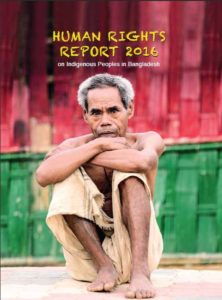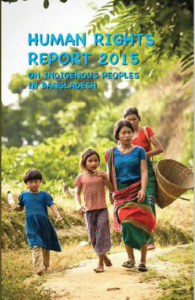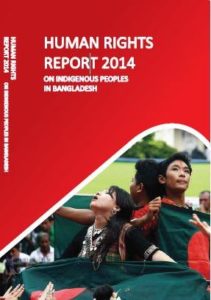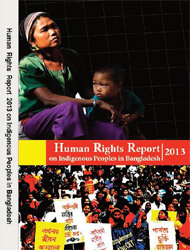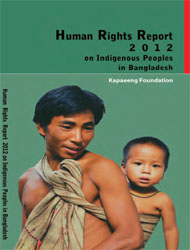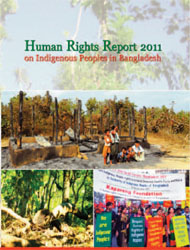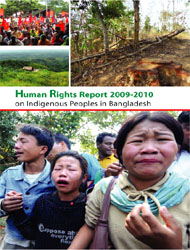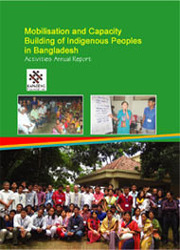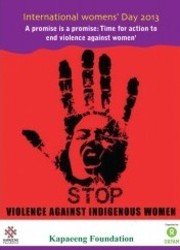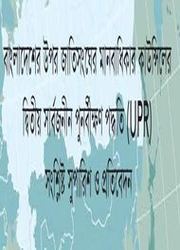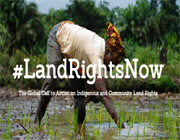Asia Preparatory Meeting on UN Mechanisms and Procedures related to Indigenous Peoples held in Philippines
The Asia Preparatory Meeting on UN Mechanisms and Other Processes Relating to Indigenous Peoples was held on 12-14 March 2014 in Tarlac City, Philippines by Asia Indigenous Peoples Pact (AIPP). The local host of the meeting were the Kalipunan ng mga Katutubong Mamamayan ng Pilipinas/National Alliance of Indigenous Peoples in the Philippines (KAMP) and its member organization, Central Luzon Ayta Association (CLAA).
The main objective of the Preparatory meeting is to discuss key issues and concerns of the indigenous peoples in the region and to prepare common positions/statements, strategies and specific activities and plans for the forthcoming session of the UNPFII in May 2014, the EMRIP in July 2014, the WCIP in September 2014, the Working Group on Business and Human Rights.
The meeting was attended by 45 indigenous representatives from 12 countries in Asia, such as, Bangladesh, Cambodia, India, Nepal, Indonesia, Malaysia, Myanmar, Philippines, Vietnam, Japan, Taiwan, and Thailand including staff of AIPP secretariat, representatives of youth and women, NGOs and experts of UNPFII and EMRIP.
Raja Devasish Roy, expert of the UNPFII; Mangal Kumar Chakma, member of Human Rights Advocacy Committee of AIPP; Binota Moy Dhamai, executive member of AIPP and member of Global Coordinating Group of the WCIP; Helena Talang of Bangladesh Indigenous Peoples Forum and Pallab Chakma, executive director of Kapaeeng Foundation attended the meeting from Bangladesh.
This is to share main points of activities and decision that were taken during the meeting in order to engage Asian IPs effectively in coming sessions – United Nations Permanent Forum of Indigenous Issues (UNPFII); Expert Mechanism on the Rights of Indigenous Peoples (EMRIP); World Conference on Indigenous Peoples (WCIP); and Working Group on Business and Human Rights (WGBHR).
In the first day on 12 March, in the morning, the Prep Meeting was started with ritual ceremony of Ayta indigenous people. Then, secretary general of AIPP Ms. Joan Carling gave an overview about Asia Prep Meeting. In the first day, in the morning, short orientation on the following issues was provided:
UNPFII: Overview of mandate, functions, and summary of achievements/issues of the UN Permanent Forum on Indigenous Issues (UNPFII) and Theme and Agenda for the 13th Session was presented by Raja Devasish Roy, expert of the UNPFII.
EMRIP: Overview of mandate, functions, and summary of achievements/issues of the Expert Mechanism on the Rights of Indigenous Peoples (EMRIP) and Theme and Agenda for the 7th Session was presented by Ms. Jannie Lasimbang, expert of the EMRIP.
WGBHR: Overview of mandate, functions, and summary of achievements/issues of the Working Group/Forum on Business and Human Rights and Agenda for the 3rd Session was presented by Ms. Beverly Longid from Cordirella Peoples Alliance.
The afternoon session was workshops on the UN Permanent Forum on Indigenous Issues (UNPFii), Expert Mechanism on the Rights of Indigenous Peoples (EMRIP) and UN BHR Forum and WG mechanisms/processes.
WCIP: Global Coordinating Group (GCG) member Binota Moy Dhamai delivered a presentation on background, and updates of the WCIP. Later on, another GCG member from Asia, Joan Carling has also shared ongoing development on the appointing co-facilitators and other organizational matters as cited to UNGA modalities resolution A/RES/66/296.
Community Visit: The second day on 13 March was a community exposure and integration with an Ayta community at Ayta village in Tarucan, Sta. Juliana, Tarlac. The Ayta are the indigenous peoples in Central Luzon. The Ayta indigenous community have been facing issues on dam and military reservation, the Babagon dam resettlement and volcano disaster. Participants held the solidarity afternoon at the village. Poverty among the Ayta indigenous peoples is pervasive and severe. They suffer from ill-health, malnutrition and insanitary conditions.
In the third day on 14 March, a short orientation on AIPNEE was given. The following are the results of the workshops on the above themes:
EMRIP: To write the Human Rights Council re respect on the Asia IP processes for the selection of Asia IP representative in the EMRIP (and other mechanisms) and recommended themes on access to justice. It is a tradition among Asia IP organizations (after the selection process) to nominate and endorse only one person as its representative to the EMRIP. The Commission on Human Rights recognizes this in the appointment of UNPFii members. The workshop identified to draft a statement on Access to Justice, Disaster Risk Reduction, and Implementation of UNDRIP; follow-up on past studies; and hold a side-event on future studies on Youth and Migration, Non-Discrimination and Indigenous Economy.
UN Business and Human Rights (BHR): To participate and prepare for the possible Asia Pacific Dialogue on National Human Rights Framework, 11-12 April 2014 in New Delhi, India. In preparation for this, participants will submit case studies based on a case study guideline that the AIPNEE secretariat shall draft. This includes the name or short profile of the company and financial institutions concerned, actions and campaigns in relation to business and HR. The deadline of initial drafts is on 30 March 2014 and for submission to the AIPP secretariat. The AIPP secretariat shall draft a statement for the said Dialogue.
Asia IP Regional Workshop on Extractive Industries, Energy and Human Rights; and related-events in April in the Cordillera, Philippines. Kindly refer to the earlier forwarded Advance Notice on these. Hold training on BHR related processes not only with the UN such as in ASEAN.
UNPFII: Program for the half-day on Asia – Asian PFII member will Chair/Facilitate session with the following proposed panel: 1 Government, 1 IASG, at least 1 IP and Special Rapporteur on IPs; and build on 2007 PF recommendations. The themes shall be on Militarization and national security, Land and territorial governance, Violence against women, Youth and children, Access to justice, Natural resource extraction and energy, Responses to recommendations, Establishment of mechanism for consultations, and Good practices.
Moreover, two side-events will be organized highlighting the topic of (1) Challenging the Implementation of International Financial Institutions (IFI) Safeguard Policies in Asia, in particular, Cambodia – IFC-funded Vietnamese company in Ratanakiri; Nepal – WB-funded construction of transmission lines; Malaysia – ADB-funded rehabilitation of transmission lines. (2) Implementation of Agreements, Accord, Treaty and other Constructive arrangements with Indigenous Peoples and States in Asia, in particular, Bangladesh – CHT Accord; NE India – Bodoland Accord; Philippines – Bangsamoro.
WCIP: Ms. Jannie Lasimbang and Mr. Binota Moy Dhamai were nominated as co-chairs for interactive dialogues and hearing on the WCIP. Funding for 19 Participants were secured. Of them, one (1) for each of the 14 countries, one (1) Youth, one (1) woman and two (2) Global Coordinating Group + lobby group will be funded. Deadline of Submission of names of participants and alternate was set as April 30, 2014 and names should be submitted to Binota/Richard.
Post 2015 Development Agenda: Discussion on Engagement and Strategies in relation to the Post 2015 Development Agenda was conducted by Ms. Grace Balawag of Tebtebba Foundation.
AIPNEE: AIPNEE had a short consultation meeting to update the members on the status of the network, past activities and plans for the upcoming months. The meeting focused on the proposal of other members on the registration of AIPNEE with the Philippine Securities and Exchange Commission (SEC) and on improving coordination, communication and decision-making.
On communication, coordination and decision-making – to improve on coordination and ensure that members from each country are informed and participate in decision-making new members to the ICC with Elina Horo, Adivasi Women’s Network, Central India to assist in the coordination in India and in certain cases as alternate member for Pushpa Toppo and Agnes Kharsiing; Dandu Sherpa, Nepal Federation of Indigenous Nationalities (NEFIN); Pallab Chakma, Kapaeeng Foundation, Bangladesh; and Anthony Debbarma, Borok Peoples Human Rights Organization, NE India were added.



